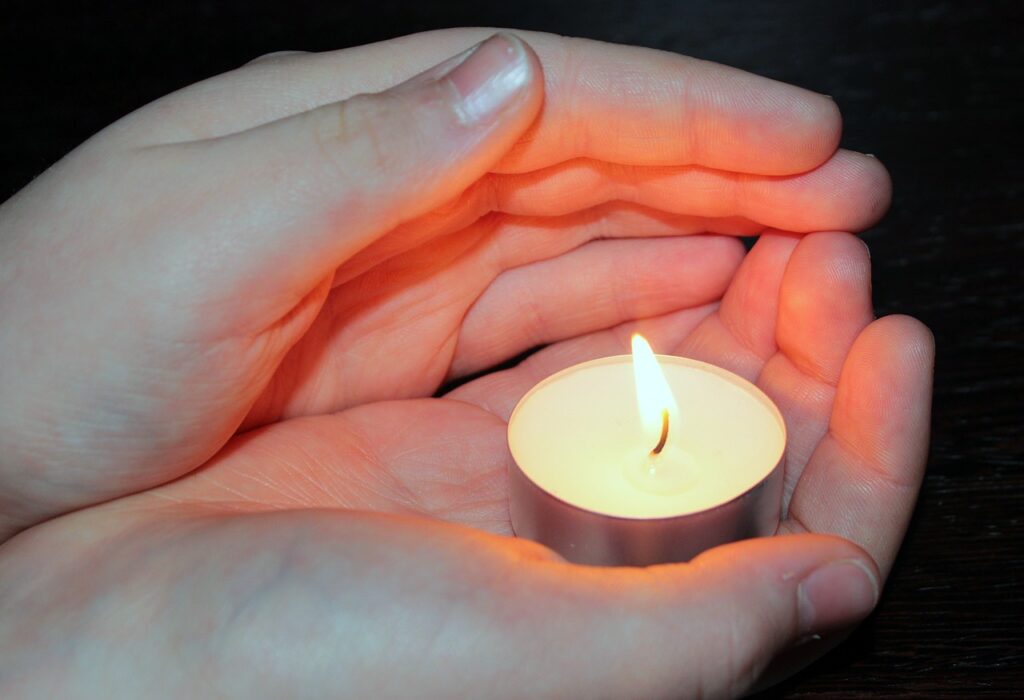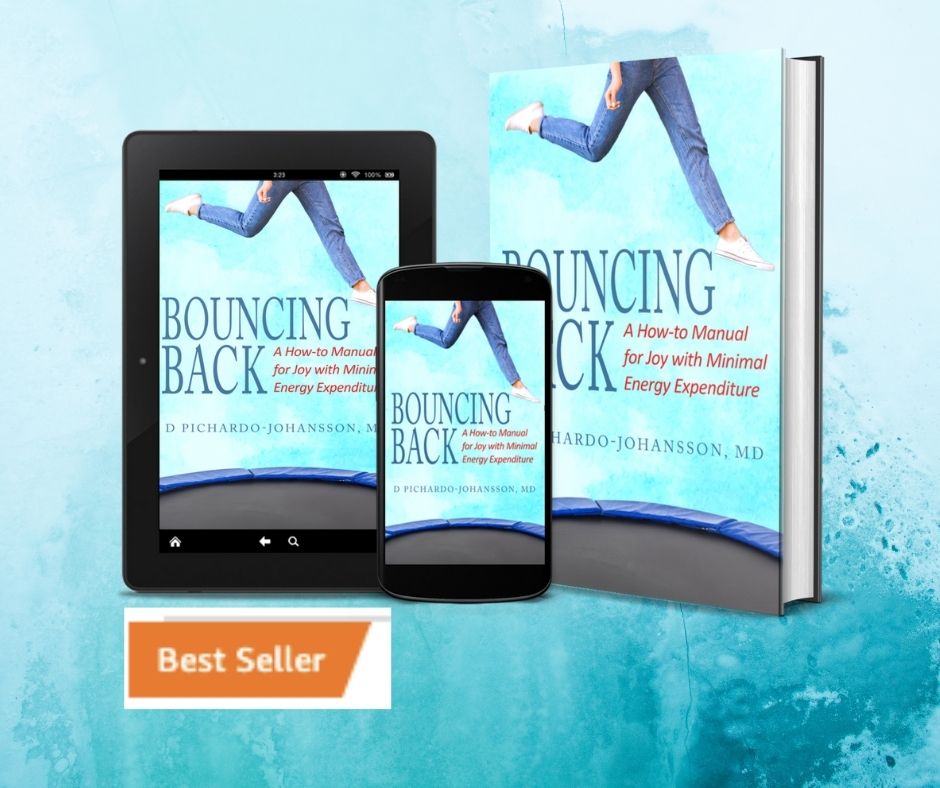How to Deal with Grief and Loss
What happens when Life hits us hard?
You know me; usually I’m a very cheerful, optimistic person. But this post is about a difficult topic. What happens when life hits us hard? When tragedies happen, when we are suffering? How do we get up from there?’
One of my best friends from medical school is facing a big loss right now. And, as you know, sometimes it hurts more when someone we love is suffering, than when we are suffering.
I’ve gone through a lot in my life. From my mother’s (and my own) cancer diagnosis to my children’s special health needs… And yet some things are even harder than that, especially when they affect people, we love.
I know that my friend, and people dealing with grief are unlikely to watch any videos. But I hope you save this link and label it “ Watch in case of emergency.” So you can have it handy if you or someone you love ever needs it. I hope never.
How to deal with Grief: Radical acceptance:
Today I’m going to share five, very practical steps that have helped me recover very time that I’ve faced a tragedy. The whole purpose of these steps is to get to the point of radical acceptance.

We waste so much energy fighting what happened. “Why me?” “Why did this have to happen?” This robs us of so much drive and will of living. When we get to the point of radically accepting this happened and nothing will change it, it’s painful, but also a huge relief. Because you regain access to all that energy that you were trapping.
So, how do we get there?
How to deal with grief and loss Step One: There’s no shortcut. You have to go through the grief.
(Or what I call in my book Bouncing Back: “This sucks, but it won’t kill me”)
You need to give yourself time and also, permission to feel the emotions. Get comfortable with the discomfort. If you try to speed up the grieving process, or numb yourself too soon, the grief will come back to get you later, and then, may be worse.
Give yourself permission to feel the sadness, the anger, the frustration, even the guilt. That’s why funerals exists, for closure. I often recommend to my clients to write a letter of complaint to the universe saying “I am angry. Why did this have to happen?” Allow yourself to feel those feelings, and also keep in the bottom of your mind a little voice that says, “This will not kill me.”
To deal with the pain of loss, remember: emotional pain doesn’t kill us.
We are trained to avoid pain because our bodies know that uncontrolled, enduring pain means that we’re being hurt and potentially in danger. But emotional pain doesn’t kill us.
Keep in mind, “I have gone through pain before and I have survived. It seems impossible right now, but someday, I will smile again. It seems impossible right now, but someday I will look back, see this and it will hurt me a little less.”
So, that was step. Number one. There’s no shortcut, give yourself permission to feel bad, while always keeping in the back of your mind, “I will survive. Someday, I will smile again.”
How to deal with grief, Step two: Zoom out. You’re not alone:
One of the, the hardest part of grieving, is this being trapping inside ourselves asking. “Why me? Why did this have to happen to me?”
Coping becomes easier if you can take a step back—out of this time, your life , this century, this world— and remember that, in history, there have been millions of people who have suffered the same thing you’re suffering right now. It may seem contradictory, but it helps to remember. “I am not alone.”

Reflect for a moment, meditate, connect with the souls of all those human beings that have gone through the pain, you’re going right now— whether it’s a loved one facing cancer, or a loved one who died in an accident. Whether is financial loss or a lover who left you, whatever pain you’re going through, remember: you’re not alone. Feel the connection to all the souls that have gone through it before.
If you know, someone who has gone through the same pain that you’re going through make sure to connect with them, either to talk, or just to hug and cry a little bit together. Because getting out of yourself— zooming out— helps a lot.
On a side note.
The ultimate Zooming Out experience is spirituality. If you’ve never had a spiritual life, this may be sound like empty words. But a spiritual practice reminds us that we are more than our egos and those brief, few years in history when we’ll be alive. And if you ever had a spiritual practice before, consider bringing it back. If anything, try it for size again. Because the ultimate zooming out is remembering that there’s something bigger than us ruling life. Whatever that means to you.
How to deal with grief Step Three: Get Busy
Don’t numb yourself out, but if you have to, do it through activity.
Often, we deal with grief by distraction, or resorting to our (legal or not) addictions—whether it is a glass of wine or binging on Netflix. But remember step one. You want to give yourself a chance to grieve. So don’t rely too much on escapism. But if you need a distraction to get unstuck from the sadness, make yourself busy in a productive way.
Start a new project. Start cleaning. Organize the kitchen drawer, catch up with laundry. Keeping yourself busy sends the message to the brain that you’re not powerless; and it also helps you move away from the being absorbed in yourself. That is even better. If you stretch it to step number four.
How to deal with grief Step Four: Find a Cause.
Find a way that you can use your loss to serve others— to serve a bigger picture. For example, the movement MADD, Mothers Against Drunk drivers, was founded by a woman whose son died in an accident because of a drunk driver. This movement has probably prevented millions of deaths in the world. When my father died from a stray bullet, my family embraced the cause of regulating weapons in the Dominican Republic. When my mother died of cancer, I embraced the cause of oncology and became an oncologist.

When you are able to find a way to serve a cause through your suffering, that helps a lot.
And that takes us to step number five (which is a continuation of step. Number two, zooming out).
How to deal with Grief Step Five: Believe.
Give yourself permission to believe that even the biggest strategy can bring something good.
The choice is yours. You can decide to believe ,“Life is terrible. Life is hard. This is proof that God is cruel.” Or you can decide to believe, “There’s a bigger picture that I don’t see right now. Something good may come from this. Even if that ‘something good,’ is that someone else will watch my suffering and be awaken, or inspired to live in the moment, or appreciate more their loved ones.”
Dare to believe that life is a bigger picture than we see that someday will understand better. Whether it is at the moment of our death, or in the future, when we learn that our story touched someone. I always say, God is the best novelist in the world. (I love writing novels). In a well-written novel, every single thing that happens, even the tragedies and sad moments, make sense at the end. Scenes entangle, a cascade of events leads to a climax, and then a resolution. Whatever is happening right now, choose to have faith that is going to bring something good in a different way to your life or the life of someone else. That someday you’ll look back and you see that was a plot twist and say, “That hurt a lot at the time, but it brought me to this better place.”
Summary :
So, those are the five steps towards radical acceptance I wanted to share with you today.
Step number one, embrace your feelings. Give yourself time. but just keep in mind in the bottom of your mind: “I have survived before, and I can survive now.”
Step number two is: Zoom out. Know that there is a bigger picture than your personal reality. Remember there are hundred, thousands, millions of people in the world who have gone through the same thing you’re going through and connect through them either spiritually or by acknowledging their existence. Or by reaching out to someone who has gone through the same thing, (either one person or a support group).
Step three: don’t numb yourself, but if you have to do it through activity, Start cleaning. Do something productive, start doing laundry. All this sends your brain, the message that you are not powerless
The step number four: Embrace a cause Find a way that you can use this tragedy to help serve others; to help prevent that tragedy to happen to someone else.
And the last step: Choose to believe that this can happen for good. (Even the most horrible thing).
I hope this helps you. Please, if you know anybody who needs to hear this words, share this video.
And let me know if there’s anything else I can help you with.



